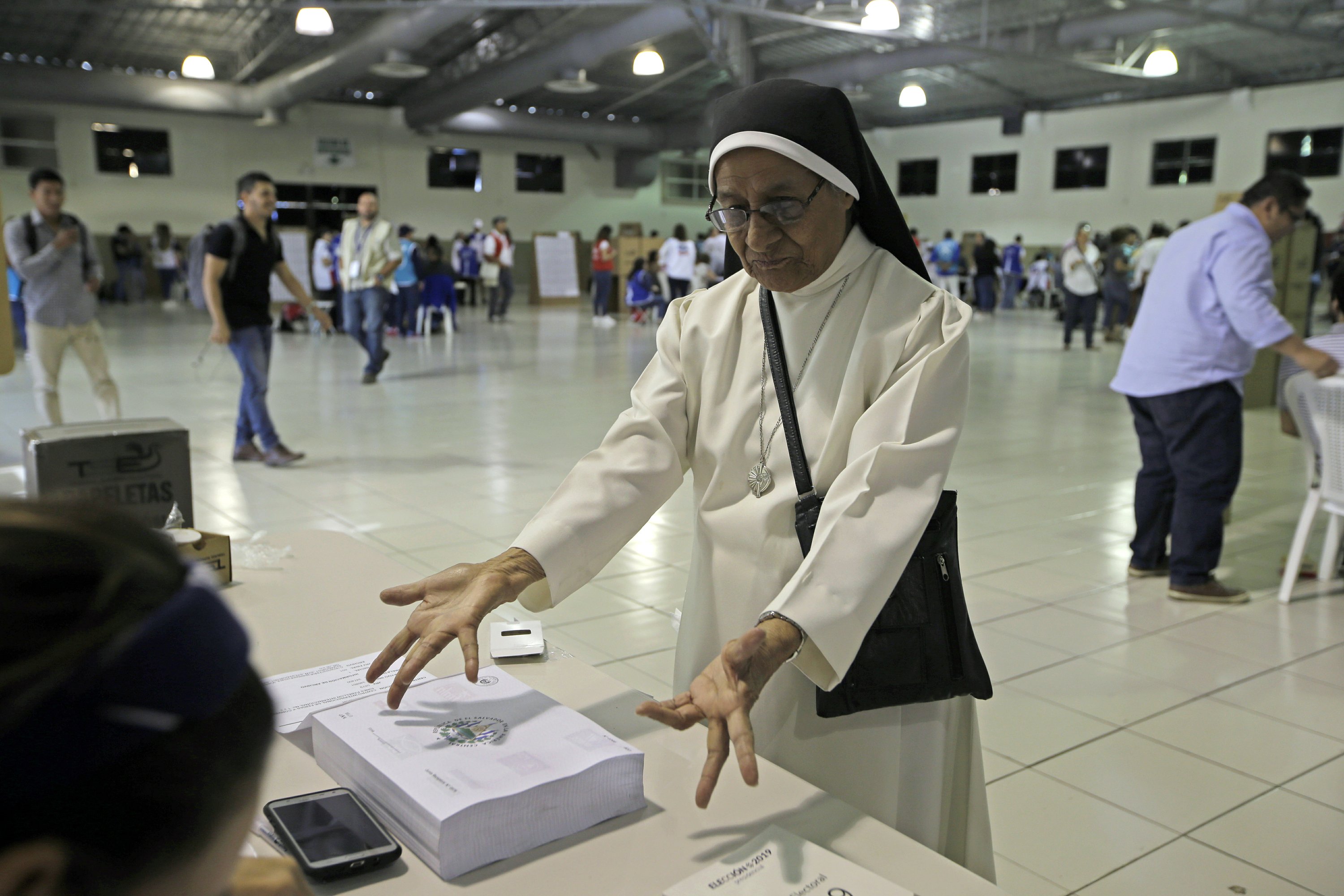
Nun Zoila Hernandez shows her fingers to electoral authorities prior to voting during the presidential election at a polling station in San Salvador, El Salvador, Sunday, Feb. 3, 2019. Salvadorans are choosing from among a handful of presidential candidates all promising to end corruption, stamp out gang violence and create more jobs in the Central American nation. (Photo: AP)
A former mayor of El Salvador’s capital was making a strong run Sunday to end a quarter century of two-party dominance in the crime-plagued Central American nation.
Polls ahead of Sunday’s vote showed Nayib Bukele ahead of the Nationalist Republican Alliance’s Carlos Callejas and former Foreign Minister Hugo Martinez of the Farabundo Marti National Liberation Front, as well as a minor-party candidate.
But he could fall short of the 50 percent needed to avoid a March runoff.
All four candidates have promised to end corruption, stamp out gang violence and create more jobs, with crushing crime at the top of the agenda: Roughly 67,000 Salvadorans belong to gangs that terrorize their communities via extortion, murder and other forms of violence.
The candidates have proposed creating economic opportunities and restoring social values to dissuade Salvadorans from engaging in criminal behavior.
Turnout appeared to be heavy in early voting, with no reports of major problems.
Bukele, 37, made his political debut in 2012 as a small-town mayor with the now-ruling Front, known as the FMLN, and won election in the capital three years later, automatically making him a potential presidential contender.
But his frequent criticism of the leftist party’s leadership led to his expulsion, and he wound up as the unlikely standard-bearer of a small conservative party known as the Grand Alliance for National Unity, whose initials — GANA — mean “win” in Spanish.
The FMLN and the conservative Alliance, known as ARENA, have dominated Salvadoran politics since a 1992 peace deal that ended a brutal civil war. But both parties have been stained by corruption scandals and neither has been able to stem gang violence.
“I came to vote because I want the country to change, because we are tired of so much corruption,” said Estela Henriquez, 27, at a polling place in the capital.
More than 4,500 election observers, including representatives of the Organization of American States and the European Union, were on hand.
El Salvador is small both in size and population, with just 6.5 million people. Close to a third of its households live in poverty, while the World Bank says per capita income is $3,560.
Salvadorans searching for a better life have joined recent caravans of migrants trekking through Mexico toward the U.S.


